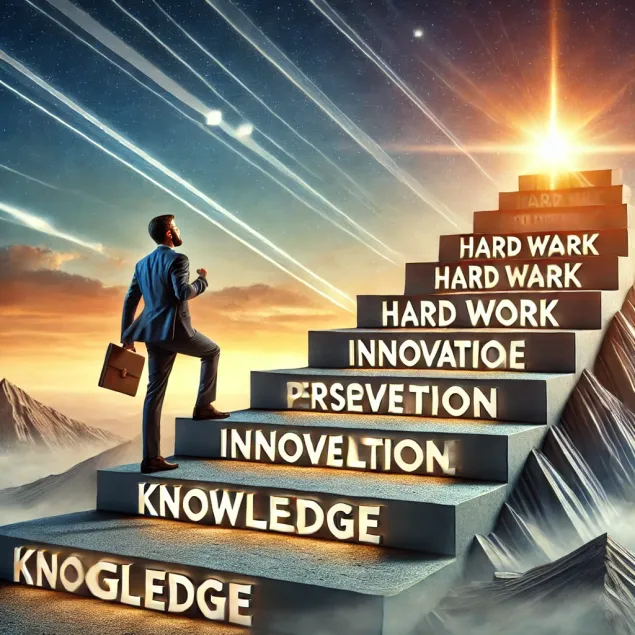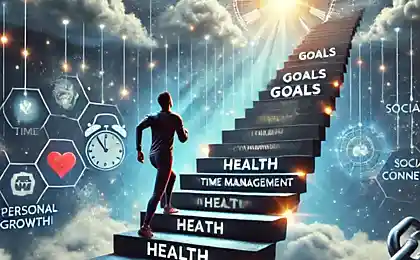182
8 Injustices You Can Overcome If You Want

Introduction. Life sometimes seems very unfair. We are faced with situations where circumstances do not depend on us or where we receive far less than we deserve by our hard work and perseverance. At the same time, there are many examples in the world where people, overcoming these obstacles, achieve success and find balance. As it turns out, some kinds of injustices do have to be tolerated, but there are some that are quite possible to overcome or at least mitigate their impact on our daily lives. Modern research, including the Harvard Business Review, confirms that our mental and emotional health is directly dependent on the ability to effectively overcome adverse circumstances.
In this article, we will take a closer look at eight common life injustices and suggest ways to not only survive, but also emerge victorious. If you learn to see opportunities where others see problems, you can build confidence, increase your productivity, and ultimately feel happier.
Main part
1. Unequal starting conditions
One of the most common injustices is the different conditions in which people are born and grow up. Some have the opportunity to get a better education, some do not. Not everyone can start a career in a privileged environment. But it is possible to overcome this gap using the following approaches:
- Self-education. With the advent of the Internet, many valuable knowledge has become more accessible. Online courses, lectures from leading professors, scientific articles and books all help to compensate for the lack of “perfect” starting conditions.
- Expanding the network. Active communication with people from different circles can open up resources and opportunities that you did not even suspect.
- Emphasis on practical skills. Skills that can be confirmed by results are often valued above formal diplomas.
2. Stereotypes and labels
In society, there are a lot of stereotypes: about age, gender, appearance, place of birth. Some of them cement our lives, creating limitations where they might not be. Research by the American Psychological Association shows that people who experience discrimination often experience acute stress, which affects self-esteem and professional fulfillment.
- Look for confirmation of your strengths, not someone else’s cliches.
- Speak out facts and results that reflect your real value.
- Maintain close communication with those who value you for your abilities and personality, not superficial labels.

3. Time constraints
Many people feel unfair in the fact that someone knows how to “fit” into his life a lot of things and at the same time copes well, while others barely have time to perform the most necessary. In fact, everyone has the same resource – 24 hours a day. The difference is in priorities and planning.
- Task optimization. Make a list of things for the day, structure them by priorities. Get rid of “time eaters” such as haphazard social media browsing.
- Delegation. Where possible, transfer some of your responsibilities to others to focus on the important.
- Regular reassessment. Check what really helps you to achieve your goals, and what only creates the illusion of employment.
4. Difference in ability
It is no secret that some people have higher natural data, for example in sports or science, than others. However, talent is often useless without effort. Persistent practice can help you go much further than you expect.
Genius is 1% inspiration and 99% sweat.
- Thomas Edison.
Even if you do not have an exceptional gift, do not give up and consider yourself doomed. There are plenty of examples when the “middle peasants” repeatedly outperformed more talented rivals due to discipline and determination.
5. Family and social obligations
Many people have significant obligations to their families, whether it’s caring for relatives, caring for children, or financially supporting loved ones. This is often perceived as a “brake” on the way to personal goals. However, there are ways to mitigate the impact:
- Clear planning. Distribute time and responsibilities in the family so that everyone knows when you are busy with your own development.
- Support and understanding. Talk openly about your needs and seek solutions together, not alone.
- Flexible thinking. Sometimes priorities have to be changed, but this does not mean that the goal is unattainable. It just means you're taking a different route.
6. Self-doubt
Uncertainty is a powerful barrier that makes us feel, This is not fair. Others can, but I cannot.” However, according to a number of psychological studies, insecurity tends to be exaggerated in our heads. In practice, things can be much easier if you recognize your strengths and start working on your weaknesses.
- Keeping a success journal. Write down even small wins to always have proof of your competence.
- Healthy communication environment. Surround yourself with people who support and inspire you.
- Gradual complication of tasks. Set achievable goals and stretch your comfort zone in stages.

7. Undervalued work
It often happens that we give our best at work or in a project, but do not receive recognition and remuneration. It is painful, but it is in your power to change the situation.
- Define the value of the result. Show how your contribution affects your overall goals and outcomes.
- Discuss career development regularly. Don’t be afraid to talk to management about promotions and additional opportunities. No one will know about your desire to grow until you voice it.
- Rethink your approach. If work is not valued in the long run, it may be worth considering a change of company or professional direction.
8. Accidents that ruin plans
Each of us has had setbacks related to unforeseen circumstances – a sudden illness, a crisis in the economy, a sharp turn in our personal lives. It seems that this is the greatest injustice: to lose what I have long been going for.
To overcome the consequences of such accidents, use agile-goals. Set not only global, but also intermediate goals, prepare spare options for action. So you can adapt faster if life throws unpleasant surprises.
Conclusion
The world is not always fair, and some things cannot be changed, no matter how hard we try. However, there are many situations that, with proper persistence and thoughtful actions, can be turned to your advantage. It is important to learn to distinguish between two categories of life injustices: those that require humility and acceptance as a fact, and those that pose a great challenge to your personal growth.
If you do not give up before the first difficulties and use every injustice as an incentive to develop, then you will not only make life better, but also become stronger and more confident. Remember that we truly grow when we learn to cope with external constraints, competently work on our internal resources and consistently go to our goals.
With the right attitude, even the toughest circumstances can become points of growth, inspire new discoveries and bring unexpected but valuable fruits. And it is the ability to find opportunities where others see only problems that distinguishes happy and truly successful people.























